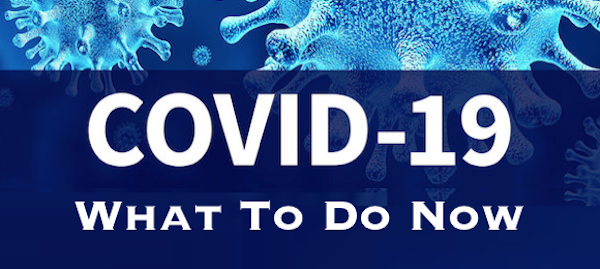
 Ed. Note. Well, there is one thing every PRP patient in full bloom likes to do is to go to a grocery store and deal with the stares of judgmental onlookers. “Snow Globe in Aisle #3!” Whether you call it social distancing, self-isolation, or self-quarantine, I am a believer. Take extra measures to put distance between yourself and other people to further reduce your risk of being exposed to this new virus
Ed. Note. Well, there is one thing every PRP patient in full bloom likes to do is to go to a grocery store and deal with the stares of judgmental onlookers. “Snow Globe in Aisle #3!” Whether you call it social distancing, self-isolation, or self-quarantine, I am a believer. Take extra measures to put distance between yourself and other people to further reduce your risk of being exposed to this new virus
.
Quarantine
Quarantine separates and restricts the movement of people who were exposed to a contagious disease to see if they become sick.
Ed. Note: IMHO – quarantine, for those who qualify – should be non-negotiable.
Isolation
Isolation separates sick people with a contagious disease from people who are not sick.
Ed. Note: IMHO – if you are sick, why would you want to go Trick of Treating? Just being a little faciteous.
 Distancing
Distancing
Distancing separates otherwise healthy people people from people who may or may not be contagious. “Better safe than sorry!?
Ed. Note: It has taken over a month for me to recently embrace “social distancing”.
On March 6, 2020 I flew from Love Field (Dallas) to San Francisco aboard a half-empty Alaska Airlines plane. I came prepared with Clorox disinfected wipes to sanitize my hands, the tray in it’s down position, and arm rests. The fellow next to me didn’t cough or sneeze for the four-plus hour flight to the Bay Area.
My return trip on March 9 offered a plane with even fewer passengers. I was all alone in 19-A.
I had too much time – to and from San Francisco – to ponder the dangers. I am high risk at 73 and a diabetic to boot.
 I have enthusiastically embraced social distancing. I have a wife with respiratory issues and a six-year-old granddaughter who lives with us –much too precious to put in Harm’s Way. We cancelled a variety of events last week, including a wedding shower, a 4-hour visit to the Crayola Experience, and even a playdate for Katarina.
I have enthusiastically embraced social distancing. I have a wife with respiratory issues and a six-year-old granddaughter who lives with us –much too precious to put in Harm’s Way. We cancelled a variety of events last week, including a wedding shower, a 4-hour visit to the Crayola Experience, and even a playdate for Katarina.
Alaska Airlines now reports that a San Francisco-based customer service agent was sent home on March 10th and tested positive for COVID-19 on March 14th. That’s my story. Use “Leave a Reply” below to share your thoughts on SOCIAL DISTANCING.
Arrange for “Extra” medications
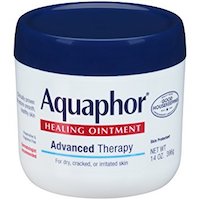
Most people who contact COVID-19 will be able to recover from the virus at home – the low-risk folks with no compromising health issues. If you cannot get extra medications, consider using mail-order for medications.
Ed. note: Those of you in the U.S. who use Aquaphor or Eucerin, remember that Beiersdorf has a by-the-case and FREE offer. MORE
Wash your hands often
Wash your hands often with soap and water for at least 20 seconds, , especially after blowing your nose, coughing, or sneezing, or having been in a public place. If soap and water are not available, use a hand sanitizer that contains at least 60% alcohol.
Ed. Note: Looking for feedback from PRP patients and caregivers on this one. Use “Leave a Reply” below.
Clean and disinfect
Clean and disinfect your home to remove germs: practice routine cleaning of frequently touched surfaces (for example: tables, doorknobs, light switches, handles, desks, toilets, faucets, sinks & cell phones)
Ed. Note: Considering the debris we create during any 24 hour period, I suspect that the regular “clean-up” associated with PRP may have this covered. But remember, it takes a disinfectant with at least 60% alcohol to kill the COVID-19 virus.
Watch what you touch
To the extent possible, avoid touching high-touch surfaces in public places– elevator buttons, door handles, handrails, handshaking with people, etc. Use a tissue or your sleeve to cover your hand or finger if you must touch something.
Ed. Note: It seems to me that a nitrile glove on one hand would do the job. Speaking of nitrile gloves, experts say wearing gloves can help you break the habit of frequently touching your face. Why is that important? Read on.
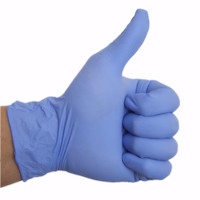
Avoid touching your face, nose, eyes, etc.
This is a tough one. Touching your face can significantly increase the risk of infection with flu or cold viruses and the new coronavirus. Your eyes and mouth are areas where viruses can easily enter your body. Studies have found that people touch their faces more than 16 times in an hour. We touch our faces so often that the odds of recontaminating our hands between washings are extremely high. Experts say wearing gloves can help you break the habit of frequently touching your face.
Ed. Note: For more information about nitrile gloves to the PRP Survival Guide.
We all do it. We touch our faces countless times every day. An itchy nose, tired eyes, wiping your mouth with the back of your hand are all things we do without a second thought. However, touching your face can significantly increase the risk of infection with flu or cold viruses, but especially the new coronavirus. Your mouth and eyes are areas where viruses can enter the body most easily, and all it takes is touching them with a finger already carrying an infection. FULL ARTICLE
Avoid poorly ventilated spaces
Your risk of exposure to respiratory viruses like COVID-19 may increase in crowded, closed-in settings with little air circulation if there are people in the crowd who are sick.
Avoid all non-essential travel
USA Today reports (March 16, 2020): “While many major cruise operators are idling their fleets, some ships are still at sea or trying to find a port as they deal with fears that some passengers or crew may have become infected with the coronavirus.
“Some have passengers aboard who either tested positive for COVID-19 or have coronavirus-related symptoms. Other ships that have no reported cases are finding some countries closing access to ports out of fear they may harbor undiagnosed cases aboard.” FULL ARTICLE
Consider alternate ways of getting food brought to your house
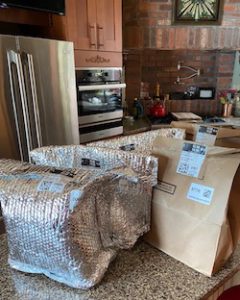 Ed. Note: This is not an endorsement , however… Now that I am basically “sheltered in place”, we are using Amazon’s Prime Now. Enter your ZIP code, shop Prime Now, a local store, or restaurant, and add items to your cart. Check out using your existing Amazon Prime account and local couriers will deliver to you. Delivery within two hours is free. Have you found alternative was of getting food brought to your house. Please use “Leave a Reply” and share. LEARN MORE
Ed. Note: This is not an endorsement , however… Now that I am basically “sheltered in place”, we are using Amazon’s Prime Now. Enter your ZIP code, shop Prime Now, a local store, or restaurant, and add items to your cart. Check out using your existing Amazon Prime account and local couriers will deliver to you. Delivery within two hours is free. Have you found alternative was of getting food brought to your house. Please use “Leave a Reply” and share. LEARN MORE
Consult with your dermatologist
Ed. Note: While you should be checking with all your healthcare providers, I urge you to consult with your dermatologist.
❏‹ What can I use to sanitize my hands?
❏‹ Are the medications I am taking for PRP increase my risk of contracting COVID-19? If so, what should WE do?
Notice the pronoun WE. Whatever your dermatologist says, please share the response using “Leave a Reply” below.
Take a moment and look at what the CDC provides healthcare professionals. Your dermatologist, nurses and other staff are in Harm’s Way. Respect the challenges they face. Acknowledge them on your next clinic visit. See what healthcare providers need to know
Stay in touch with others
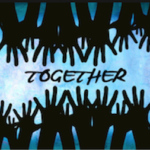 Stay in touch with others by phone, email, Facebook, Facetime, Skype. You may need to ask for help from friends, family, neighbors, community health workers, etc. if you become sick.
Stay in touch with others by phone, email, Facebook, Facetime, Skype. You may need to ask for help from friends, family, neighbors, community health workers, etc. if you become sick.
Ed. Note: Expand your Circle of Support beyond your property line. My neighbor, Hector, is my go-to guy. And stay connected with the PRP Facebook Support Group. Remember: You are not alone. We are in this together.
Determine IN ADVANCE who can care for you
Determine IN ADVANCE who can care for you if your caregiver gets sick. Watch for symptoms and emergency warning signs, e.g., high temperature and respiratory distress.
Pay attention for potential COVID-19 symptoms
Potential COVID-19 symptoms include fever, cough, and shortness of breath. If you feel like you are developing symptoms, call your doctor.
If you develop emergency warning signs for COVID-19
If you develop emergency warning signs for COVID-19get medical attention immediately. In adults, emergency warning signs, This list is not all inclusive. Please consult your medical provider for any other symptoms that are severe or concerning.
❏‹ Difficulty breathing or shortness of breath
❏‹ Persistent pain or pressure in the chest
❏‹ New confusion or inability to arouse
❏‹ Bluish lips or face
❏‹ High temperature
What to do if you get sick
❏‹ Stay home and call your doctor.
❏‹ Call your healthcare provider and let them know about your symptoms. Tell them that you have or may have COVID-19. This will help them take care of you and keep other people from getting infected or exposed.
❏‹ If you are not sick enough to be hospitalized, you can recover at home. Follow CDC instructions for how to take care of yourself at home.
❏‹ Know when to get emergency help.
❏‹ Get medical attention immediately if you have any of the emergency warning signs listed above.
Stress and Coping
The outbreak of coronavirus disease 2019 (COVID-19) may be stressful for people. Fear and anxiety about a disease can be overwhelming and cause strong emotions in adults and children. Coping with stress will make you, the people you care about, and your community stronger.
Ed. Note: The CDC has a MAJOR section on managing anxiety. IMHO – when a PRP patient is officially diagnosed with pityriasis rubra pilaris, fear, anxiety, and stress are front and center. We have all found ways to cope. The threat of COVID-19 and the challenges we face in our respective countries, adds another layer. If there was ever a group who can handle the stress, it’s us.
